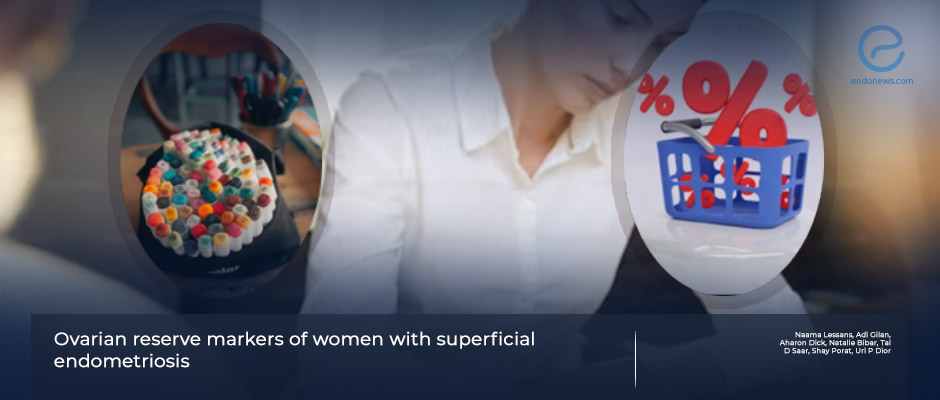"Ovarian Reserve Markers" in Peritoneal Endometriosis
Jan 5, 2024
Anti-Mullerian hormone and antral follicular count are not altered in peritoneal endometriosis, study found.
Key Points
Importance:
- Serum Antimullerian Hormone (AMH) and ovarian antral follicle counts are diminished in women with endometrioma and deep infiltrating endometriosis, as compared to the general population, however the status of ovarian reserve in patients with the most common endometriosis type, namely "peritoneal endometriosis" is not well-known.
Highlights:
- Despite normal pelvic anatomy, peritoneal endometriosis may still negatively impact fertility in women, however the ovarian reserve does not seem to be altered.
What's done here:
- An Israeli tertiary endometriosis center conducted a matched case-control study to determine whether ovarian reserve is affected in patients with peritoneal endometriosis.
- A half of 124 women were surgical-pathologically diagnosed with peritoneal endometriosis, and the other half, without known or suspected endometriosis served as the control group.
- All the demographic, clinic, and medical data were collected by a questionnaire, and Anti-Mullerian hormone levels and antral follicular count were assessed in every patient.
Key Results:
- There were no statistically significant differences between the study and control groups in mean serum AMH levels and antral follicle counts.
- Multivariable logistic regression (including AMH under the 10th percentile, the presence of hormonal treatment or comorbidities, and the presence of peritoneal endometriosis as the independent variables) revealed a significant associateion with low AMH levels.
- No statistical differences were observed between the study and the control group in mean serum AMH levels and the number of antral follicles.
Strength and Limitations:
- Being the first case control comparative study analyzing AMH and AFC of surgically and histopathology-proven superficial endometriosis, and apropriate matching of groups to reduce the baseline diversity are strengths.
- The study population was relatively small, and from a single center, could make the statistical decisions controversial.
- The possiblity that some women in the control group also had endometriosis.
- There was no information about the precise duration of peritoneal endometriosis.
Lay Summary
Endometriosis-related subfertility is attributed to multiple factors, including mechanical obstructions, adhesions, pelvic inflammation, and diminished ovarian reserve. Serum anti-Mullerian hormone (AMH) levels and ovarian antral follicle counts (AFC) currently serve as fertility markers to diagnose decreased ovarian reserve and failure. Recent literature reported a significant decrease in serum AMH levels and lower AFC in women with endometrioma and DIE. The status of ovarian reserve in patients with the most common endometriosis type, namely "peritoneal endometriosis" is not well-known.
"Peritoneal endometriosis" is characterized by superficial lesions in the peritoneum and is mainly classified as early stage. Despite the normal pelvic anatomy, this type of endometriosis may negatively affect the women.
Lessans et al. from the Endometriosis Center of the Department of Obstetrics and Gynecology of Hebrew University, Israel, set up a case-control study in their tertiary clinic to assess the association of surgically proven stage I/Il peritoneal endometriosis with ovarian markers.
Both the study and the control groups included 64 women. Their demographic features were matched, and when the serum AMH and ultrasonographic ovarian AFC results were compared statistically, the results showed no difference between the peritoneal early stage endometriosis group and the control group.
The authors wished for further and more extensive studies to justify no change in ovarian reserve in superficial endometriosis.
This interesting article was recently published in the December 2023 issue of International Journal of Gynecology and Obstetrics.
Research Source: https://pubmed.ncbi.nlm.nih.gov/38124348/
ovarian reserve anti-Mullerian hormone antral follicular count pelvic pain subfertility endometriosis.

